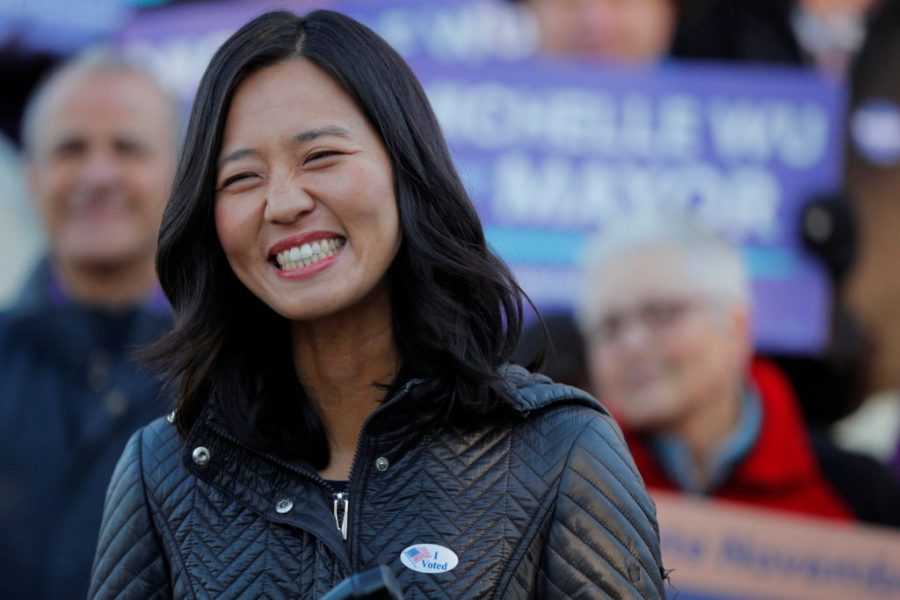A Mayoral Move Into the Future
The mayoral election of Michelle Wu is a major step forward in the representation of minorities in America’s political system.
On November 16th, 2021, Michelle Wu made history as the first Asian-American woman to be elected to the Office of Mayor in Boston. The election of Wu, a 36-year old lawyer, marks a momentous demographic shift in the political spectrum. Her election has made headlines—not only for her proposals but also for the underrepresented communities she represents and symbolizes hope for.
Wu has a progressive plan for Boston and is beginning to propose significant policy proposals to further the agenda her campaign promised. Her policies center around lowering the housing costs that have pushed former residents out of Boston by pursuing rent stabilization and control.
Wu also based her mayoral run on the implementation of a “fare-free” public transportation system in order to strengthen the city’s economy and address climate change concerns. Her legislative proposals concentrate on education, food access, and closing the racial wealth gap. Wu writes that “our policy platform is more than a vision,” but rather a commitment to center on
“racial, economic, and climate justice, and a promise to Boston residents.”
Why are her proposals so important? Historically, white men have dominated politics not only in Boston but across the United States, even though they are not the majority of the population. This demonstrates the idea of white male minority rule, which refers to the fact that white men make up 30% of the US population, but 62% of officeholders; comparatively, women and people of color are 51% and 40% of the population respectively, and 31% and 13% of office.
The Guardian explains how this limited perspective is represented in the halls of power and the subsequent formation of policies shaped around their ideals. In this legislative cycle, white male politicians have passed new voter restrictions that target vulnerable voters and people of color—bills that would shorten windows to apply for mail-in ballots, limit early voting times, and further restrict voter ID requirements are being disproportionately introduced in counties with high populations of Asian-Americans. Even with women and people of color running for office, men overwhelm the candidate pool.
Incumbency is a significant reason behind the lack of gender equality in political spheres and an obstacle to a more representative government. The political system is built around the interests already included in it—96% of congressional incumbents win re-elections, which leaves little space for new, diverse voices.
The election of Michelle Wu reflects the growing inclusivity of the political sphere. She symbolizes a turning point for one of the most historically underrepresented demographics in politics: Asian-American women. According to Politico, members of the AAPI community make up 6.1% of the American population but constitute only 0.9% of elected officials across all levels of government in 2020.
The need for Asian-American representation exponentially increased with the rise of hate crimes targeting the Asian population amid the Covid-19 pandemic and Sinophobic fear-mongering. As noted, the people in office shape legislation and the political climate. Wu’s experiences as a woman and a person of color shape her plans for the new and improved Boston. This election is one for the history books, as it has the potential to further the democratic evolution of the United States electoral system.


